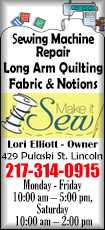|
 Researchers studied 51 people at an outdoor music festival in
Amsterdam, asking half of them to wear earplugs. Researchers studied 51 people at an outdoor music festival in
Amsterdam, asking half of them to wear earplugs.
In hearing tests after the 4.5-hour show, only 8 percent of the
earplug group had what’s known as a temporary threshold shift (TTS),
or reduced range of hearing abilities that happens after exposure to
lots of noise, compared with 42 percent of the unprotected group.
The study team also tested participants for tinnitus, or ringing in
the ears, and found this happened to 12 percent of the earplug group
and 40 percent of the others.
“This study shows very dramatically the difference in real hearing
changes … if one uses ear plugs at a typical rock concert versus not
using ear plugs,” said Dr. Jennifer Derebery, a researcher at the
House Ear Clinic and Institute in Los Angeles who wasn’t involved in
the study.

So-called acquired hearing loss – the temporary kind people can get
at concerts – is becoming much more common, lead study author Dr.
Wilko Grolman of the University Medical Center Utrecht in the
Netherlands and colleagues note in JAMA Otolaryngology – Head and
Neck Surgery. Repeated episodes of temporary damage like the kind
that happens at a live show can eventually lead to permanent hearing
loss.
Sounds louder than about 85 decibels can lead to permanent hearing
loss with repeated exposure. Concert attendees are typically exposed
to sounds around 100 to 110 decibels, about as loud as a chain saw.
Typical conversations happen around 60 decibels.
Age-related hearing loss happens naturally over time, affecting half
of adults over 65 years old. But many younger people can avoid
further damage to their ears by steering clear of loud noise and
wearing proper protection when they spend long periods of time
exposed to noises at for work or leisure pursuits.
One limitation of the study is that researchers couldn’t test
hearing loss at some frequencies, which may have led them to
underestimate the number of participants who suffered from temporary
hearing loss, the authors note. They also lacked data on the exact
level of noise exposure at the music festival.
[to top of second column] |

Even so, the findings add to a growing body of evidence from smaller
studies suggesting that earplugs can reduce temporary hearing loss
among concert-goers, said Colleen Le Prell, a hearing and
communication researcher at the University of Texas at Dallas who
wasn’t involved in the study.
The study also suggests not every person at the concert will be
affected the same way, Le Prell said.
“This well-designed study documents the variability of the effects
of the noise on the unprotected ear,” Le Prell added. “Not every
participant in the unprotected group developed TTS.”
Unfortunately for music lovers, though, getting bad seats in
addition to wearing ear plugs is the best way to safeguard hearing,
Derebery said by email.
“Do not try to get seats close to the speakers or close to the
stage,” Derebery added. “If they like to go to concerts a lot, it is
worth the money to have custom earplugs.”
Even though this study didn’t look at long-term hearing loss,
previous research in animals has shown that repeated episodes of
temporary hearing loss can eventually lead to lasting problems,
Grolman said by email.
“So we presume that consistent use of earplugs can prevent
noise-induced hearing loss,” Grolman added.

SOURCE: http://bit.ly/1S7vh1O JAMA Otolaryngology – Head and Neck
Surgery, online April 7, 2016.
[© 2016 Thomson Reuters. All rights
reserved.] Copyright 2016 Reuters. All rights reserved. This material may not be published,
broadcast, rewritten or redistributed. |